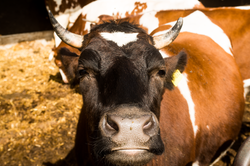 |  |  |
|---|
Organic Agriculture in the Four Cardinal Points of Germany
Four cases in Hamburg, Berlin, Stuttgart and Zülpich (NRW)
The map of Germany can be reconstructed through its agricultural enclaves. Where there is the scent of forest, oak and hazel –those that inspired Heine and Hölderlin– various expressions of biodynamic and bioland agriculture also flourish. These same ones that embrace biodiversity, solidarity collectives and pedagogy and have been intervening the rural space for decades, promoting the integral fertility of the countryside.
This documentation shows the diversity of impulses –environmental, nutritional, cultural– that guide the shaping of a holistic and multifunctional farm. The Domäne Dahlem, as well as being green enclave that oxygenates Berlin, also serves as a museum and an agora for the benefit of reconnecting citizens with the countryside. The Reyerhof in Stuttgart is focused on community supported agriculture and serves as a meeting place for those who wish to recognise the origin of the food that nourish them. The Gut Wulfsdorf in Hamburg and the Haus Bollheim in Westphalia protect bakery and cheese-making traditions guided by the principles of biodynamics.
This series shows the invisible effects of a countryside management dedicated to creating healthy environments. Food quality thus transcends the merely quantitative and reflects the harmony of a landscape inhabited by animals, humans and plants. The fact that these spaces are accessible and seek contact with the public complements farming with education and the constitution of environments that keep entire ecosystems.
 |  |  |  |
|---|
GUT WULFSDORF
Hamburg
 |  |  |
|---|
España
Son Mut Nou (Mallorca) / Elche / Extremadura / Andalucía
DOMÄNE DAHLEM
Berlin
 |  |  |
|---|
HAUS BOLLHEIM
Zülpich (Nordrhein Westfalen)
 |  |  |  |
|---|
REYERHOF
Stuttgart
The whole documentation will release on July 2025.